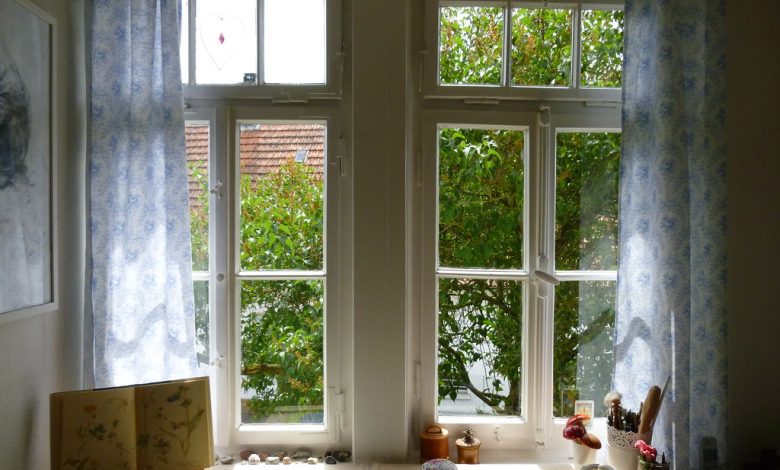How to Clean Your Glass Doors and Windows Like a Pro?

We all have those days when we wish our windows and doors were cleaner. Unfortunately, cleaning them can be a difficult task. In this article, we’ll walk you through the steps of how to clean your glass doors and windows like a pro. We’ll also give you tips on how to avoid streaks, how much time it will take and what products work best for your home.
The first step to sparkling clean windows is dusting
No matter what type of windows you have, whether they’re made of wood or steel, you should start by dusting. Dusting is the first step to cleaning your glass doors and windows. The most important part to dust is the window frames, sills and blinds—these are the parts that collect most of the dirt on a daily basis.
You can also dust off your curtains or blinds if they are made with fabric as well as other surfaces in your home/office that show signs of use or wear. To clean hard-to-reach places like corners and edges, use a soft cloth or feather duster instead of paper towels because they can easily scratch surfaces when applied too forcefully against them (unlike cloths or feathers). After giving everything a good sweep with these tools, move onto step two: wiping down
Clean windows with a solution of 1 cup white vinegar and 1/4 cup dish soap in 2 gallons warm water.
Once you’ve collected your cleaning supplies, apply the solution to one window at a time. Using a squeegee or washcloth, wipe down each window starting from the top and moving down. Avoid using too much of either vinegar or dish soap; if your windows start to look cloudy, add more water.
Don’t forget about the inside of your glass doors! You can use this same solution on them as well (just don’t spray it on your indoor plants).
Use a microfiber cloth for the best results.
If you’re looking for a way to clean your glass without having to buy any expensive tools, microfiber cloths are the best option. Why? Because they are soft and absorbent, so they can pick up the dirt and grime on your windows without scratching them. Microfiber cloths aren’t just easy to use; they’re also reusable, which means that washing won’t cost you anything extra.
Paper towels are not recommended because they leave lint behind and don’t absorb as much liquid as microfiber towels do. Cotton rags also leave lint behind when used on glass doors or windows, but they may cause scratches if used too vigorously or roughly (you know how cotton tends to be rough).
Paper napkins work well enough if all you need is just a little bit of cleaning ability—but it’s best not to rely on them too much since paper napkins tend not be very absorbent themselves (and what kind of person would wash their glasses with their burger wrappers?). Old newspapers will only give you a surface level clean—if anything at all!
Microfiber towels work great for cleaning windows and leaving them streak-free.
Microfiber towels are the best option for cleaning windows. If you don’t have any microfiber towels, don’t worry! You can use a newspaper or cotton rag instead. Microfiber towels are better at removing dirt and other grime from your windows, so they’ll leave them streak-free after you’re done cleaning them. They’re also great for cleaning glass; just take care not to rub too hard as this could cause scratches on your window panes.
After cleaning your glass, wipe it dry with old newspapers or a clean cotton rag.
After you’ve cleaned your glass and wiped it dry, you’ll want to remove any excess moisture with old newspapers or a clean cotton rag. Paper towels are not recommended, as they leave behind tiny paper fibers that can scratch the surface of your windows. Microfiber cloths should also be avoided, as they tend to leave behind spots on the glass and may even scratch it if they’re not cleaned properly after use.
Use a clean cotton rag instead of an old one that’s been used to wipe up oily fingerprints from other surfaces around the house; this will ensure that those oily stains don’t transfer onto your new window!
For sparkling clean windows, wash them when the sun isn’t shining directly on them.
If you’re going to clean your windows, it’s best to do so when the sun isn’t shining directly on them. Water can cause streaks when it hits a window that’s still warm from direct sunlight. So if you live in an area with four distinct seasons (or even if you just want to be cautious), avoid washing windows during the hottest hours of the day—and whenever possible, try to do it on a cloudy day!
Be sure to check how your windows open before cleaning them.
Before you get started, it’s important to take a quick inventory of your windows. The way the window opens will determine how you clean it.
- If your window opens from the top: clean it from the bottom.
- If your window opens from the left: clean it from the right.
- If your window opens from the bottom: clean it from the top.
- And finally, if your window opens from the right: clean it from left!
How do you clean windows without wiping?
To clean windows without wiping, you’ll need to use a microfiber cloth, a solution of 1 cup white vinegar and 1/4 cup dish soap in 2 gallons warm water, and old newspapers. First, wipe the glass with your microfiber cloth using a back-and-forth motion. Then soak the whole window with the vinegar solution.
Let it sit for 10 minutes before applying firm pressure with your microfiber cloth to remove dirt and grime. Afterward, rinse all residue off your windows with clean water (you may have to repeat this step several times). To dry your windows off quickly, place sheets of newspaper on them while they’re still wet.
How do professionals clean windows without streaks?
Now that you know how to clean your windows and doors, here are a few more tips to help you achieve streak-free results.
- Use a squeegee to remove excess water from your glass surfaces before applying the cleaning solution and rinsing them with water. The squeegee should be dry for best results, so wipe it with newspaper or use a microfiber cloth if necessary.
- Glass cleaners containing ammonia are great for removing stains left behind by fingerprints or food grease; however, they can leave streaks on glass surfaces if not applied correctly. Apply the cleaner using newspaper or an old rag rather than directly onto the window so as not to spread around any leftover residue from previous applications of ammonia-based cleaners (you’ll notice these days that most companies have begun marketing their products as “ammonia free”).
- Vinegar has many uses around the home: as an ingredient in marinades, salad dressings and brines; as a cleaning solution when mixed with baking soda; and even as a hair care product! It’s also good for removing mineral deposits from hard water stains on glass surfaces—just combine equal parts white vinegar and warm water into an empty spray bottle before spraying it onto your dirty windows until all dirt is gone.”
Hire Professional Services
If you don’t want to do it yourself or the thought of cleaning all your glass doors and windows fills you with dread, there is another option: hiring House Cleaning Services In Dubai.
They will come in with the right tools and equipment and can do a better job than you could ever hope for. You also won’t have to worry about making mistakes or damaging anything. The experts know exactly how much pressure is required to clean each surface, as well as what solutions work best on each type of glass surface.
And if something goes wrong, they have insurance in case something breaks while they are working on your home. If that isn’t enough reasons why hiring professionals makes sense, know that they can save you money too!
With just a few simple steps and a little elbow grease, you’ll have sparkling clean windows in no time!
- Mix a solution of vinegar and water (1/2 cup vinegar, 1/8 cup water).
- Wash windows with a microfiber cloth. Be sure to remove dirt and grime before applying the solution so you don’t put streaks on your glass.
- Wipe dry with newspaper or a clean cotton rag. The paper will absorb any excess moisture left behind from wiping the window down and leave it streak-free. If using an old rag or towel, make sure to launder it thoroughly before reusing it for other household chores!
- When washing windows outside, use warm water so that they don’t get too cold when they’re exposed to wind while drying—cold glass can crack easily if not dried properly afterward! Also check how your windows open before cleaning them: if their hinges are rusty or worn out, this could cause damage over time if not replaced quickly enough after cleaning has been completed; however there are many ways around this problem such as replacing panels instead of doing all new ones (which would cost more money).
Conclusion
Thanks for reading! We hope these tips have helped you to clean your glass doors and windows like a pro. If you have any questions or comments, please feel free to leave them below. We would love to hear from you!





